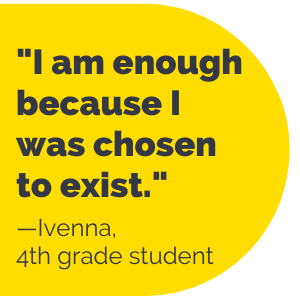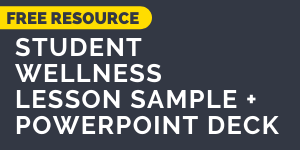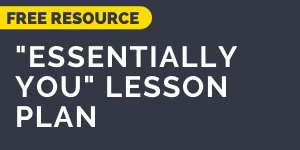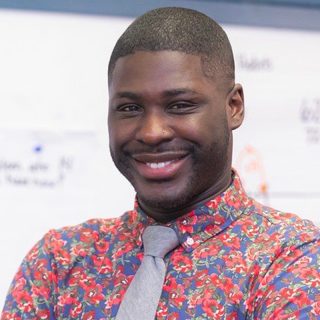School Wellness Lessons
On the cue of “go” a class of 4th graders races to find their favorite book. Bursting with excitement, they eagerly return to their seats with popular titles such as Goosebumps and Harry Potter. At the start of this community building block, students have space to indulge in 5 minutes of leisure reading while a soft Disney instrumental plays in the background.
This is just one example of how an act of wellness—in this case an act of intellectual wellness—has been incorporated into the daily class structure at North Star Academy’s Alexander Street Elementary School.
As students explore rigorous academic standards throughout the day, it is equally important that they are given opportunities to engage in acts of wellness and that they understand the importance of prioritizing their wellness as they work to accomplish goals. We also want them to know that who they are and what they bring to every space they enter is enough and that they can be confident in who they are without feeling compelled to change the characteristics they love most.
At Alexander St. Elementary School, students have received lessons on 5 types of wellness. These lessons were written by school social workers and led by classroom teachers. Each lesson included practice of a wellness activity, ranging from meditation to journaling, and a reflection of why it is important to prioritize wellness on the path to college and beyond. During the daily community block, students incorporate at least one of these wellness activities daily.
- Physical (yoga, eating healthy, rest)
- Social (giving compliments, acts of kindness)
- Emotional (naming your feelings)
- Intellectual (reading a book, solving a riddle)
- Spiritual (yoga, meditation, praying, journaling)
To help you kick this practice off in your classroom, we’re excited to share an Introduction to Wellness PowerPoint deck with the corresponding lesson template. The PowerPoint breaks down and gives examples of the different types of wellness and why each is important, and the lesson plan provides a structure for the conversation as well as a template for student reflection.
Self-Love and Identity
Another way student wellness is prioritized is through lessons on self-love that encourage the use of positive affirmations and an understanding of one’s identity.
“I am Black, and I am proud to be.” Milan Simpkins, a 4th grade student, excitedly typed these words into the chat during community circle, an opportunity for multiple grade levels to come together with school leaders and teachers. Each day students have space to reflect on an affirmation and share with their peers.
- “I shine like the stars”
- “I am an intelligent King”
- “I am smart I am confident”
- “I am a go getter”
- “I always brighten up the room”

Throughout the year students have been encouraged to use positive affirmations to motivate themselves and others. These affirmations have been especially impactful for Milan, who started the year below proficiency in reading and is now above proficiency, and scored 30 percentage points higher in the Numbers and Operations in Base Ten domain of her recent math exam than she did on the previous exam.
To further explore self-love and identity, our school social worker created a session titled, “Essentially You—Celebrating Who You Are”.
- Who are you?
- What makes you, you?
These are questions students were able to reflect on before reading, I Am Enough by Grace Byers. Students were prompted to reflect on why the little girl in the story is enough and how the message relates to their lives. “I am enough because I was chosen to exist,” shared Ivenna, a 4th grade student. After their reflections, students were tasked with creating an “About Me” poster that included a self-portrait and key qualities and characteristics of themselves. They then presented their “About Me” posters to their peers in order to celebrate one another.
If you’re interested in rolling out the “Essentially You” lesson plan with your students you can use this PowerPoint deck to do so.
Student wellness has become an integral part of the daily schedule over the past year across many of our schools. In the 2021-2022 school year, every Uncommon elementary school will have 30 minutes a day of community building. This sacred time in our schools’ daily schedules will allow for increased social emotional learning opportunities while continuing to foster a more diverse, equitable, and inclusive school community. By grounding each day in these community building moments that foster self-love and celebrate identity, we strongly believe our students will be able to grow and thrive as students and individuals.
انقر أدناه للحصول على ملفات PDF لجميع الموارد المشار إليها أعلاه:





